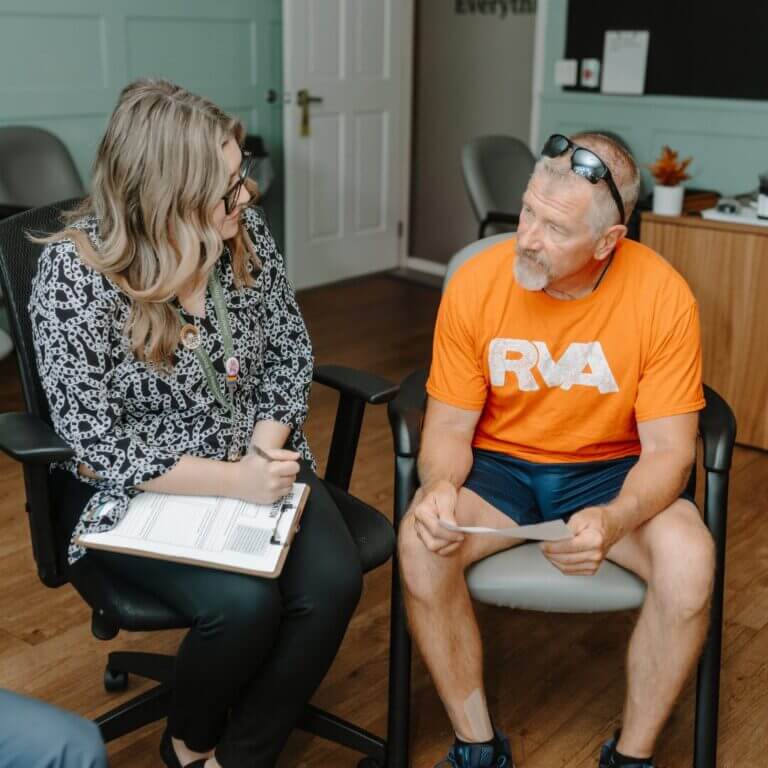There is no way around it — stress is an unfortunate element of daily life. Learning to manage stress is vital for individuals in recovery, as runaway stress is a common trigger for relapse. In fact, there is evidence to suggest that stress can induce cravings. Since we can never predict when something may cause stress levels to spike, it’s best to have a plan in place to handle these situations.
How stress can be a trigger for relapse
Whether stress is caused by work, relationship troubles or financial difficulties, it can trigger our “fight or flight” response. When we encounter stress, the body produces cortisol and adrenaline as an innate response to something we perceive as a threat. It can cause a sudden jolt of fear that makes our heart race, cause shortness of breath and other symptoms.
When you’re actively engaged in substance use, it is not unusual to rely on alcohol or drugs as a coping tool for managing stress. Read on to learn how to navigate stress safely and maintain sobriety.
6 ways to maintain sobriety in times of stress
Because events that cause significant stress can pop up out of nowhere, it is essential to have a coping strategy at hand. Consider these six tips to help manage stress and prevent relapse:
- Acknowledge your feelings: The best way to prevent relapse during stressful times is to stay in touch with your emotions. Instead of ignoring your feelings or denying that you are struggling, acknowledge your emotions and take proactive measures to deal with them.
- Get regular exercise: Exercise is a great way to reduce stress. Physical activity benefits all aspects of our beings — mind, body and spirit by improving your mental health, your physical health and sleep quality.
- Reach out to your sober support network: When you find yourself facing a highly stressful situation, that’s when you need your support network the most. Do not hesitate to reach out to your team when you feel overwhelmed.
- Practice stress reduction techniques: There is a broad range of holistic methods that can help manage stress. These include:
- Yoga: Yoga uses a combination of movements and focused breathing to help quiet the mind and achieve calm.
- Deep breathing: When stressed, you can quickly slow your heart rate and breathing rate through deep breathing exercises.
- Meditation: Find some quiet time to sit alone and reflect. When distracting thoughts arise, redirect your attention to a mantra or positive affirmation that brings you peace.
- Massage: A therapeutic massage releases the stiffness in your muscles and provides a sense of deep relaxation to the body.
- Essential oils: Aromatherapy helps you unwind and relax. Add some drops of rose oil, lavender or ylang ylang to your bath or diffuser.
- Create healthy routines: When you establish healthy habits early in recovery, you are creating a routine that helps you stay on track easier. Eating healthy foods, getting regular exercise and sticking to a sleep routine all work together to improve overall wellness.
- Stay productive: Combating boredom should be a priority in recovery. Jot down a list of projects you wish to accomplish, order a book you’ve been wanting to read or learn a new skill. Staying productive helps alleviate stress and boredom at the same time.
Although there is no way to avoid stress in our lives, there are plenty of ways to manage it. Protect your recovery by taking proactive steps to reduce stress.
Ashley Addiction Treatment, formerly Father Martin’s Ashley, is a nationally recognized nonprofit leader in integrated, evidence-based treatment for substance use disorders. Our programs are accredited by The Joint Commission, and result in frequent publications of ongoing research into effective treatment methodologies. We offer holistic care that encompasses the mind, body and spirit through inpatient and outpatient treatment, provide drug detox, relapse prevention plans, family wellness programs and a variety of other services tailored to each patient’s unique needs. Our driving principle — “everything for recovery” — reinforces our mission to transform and save lives through the science of medicine, the art of therapy and the compassion of spirituality, and is complemented by our philosophy of healing with respect and dignity. For information about our comprehensive programs, please call 866-313-6307.



